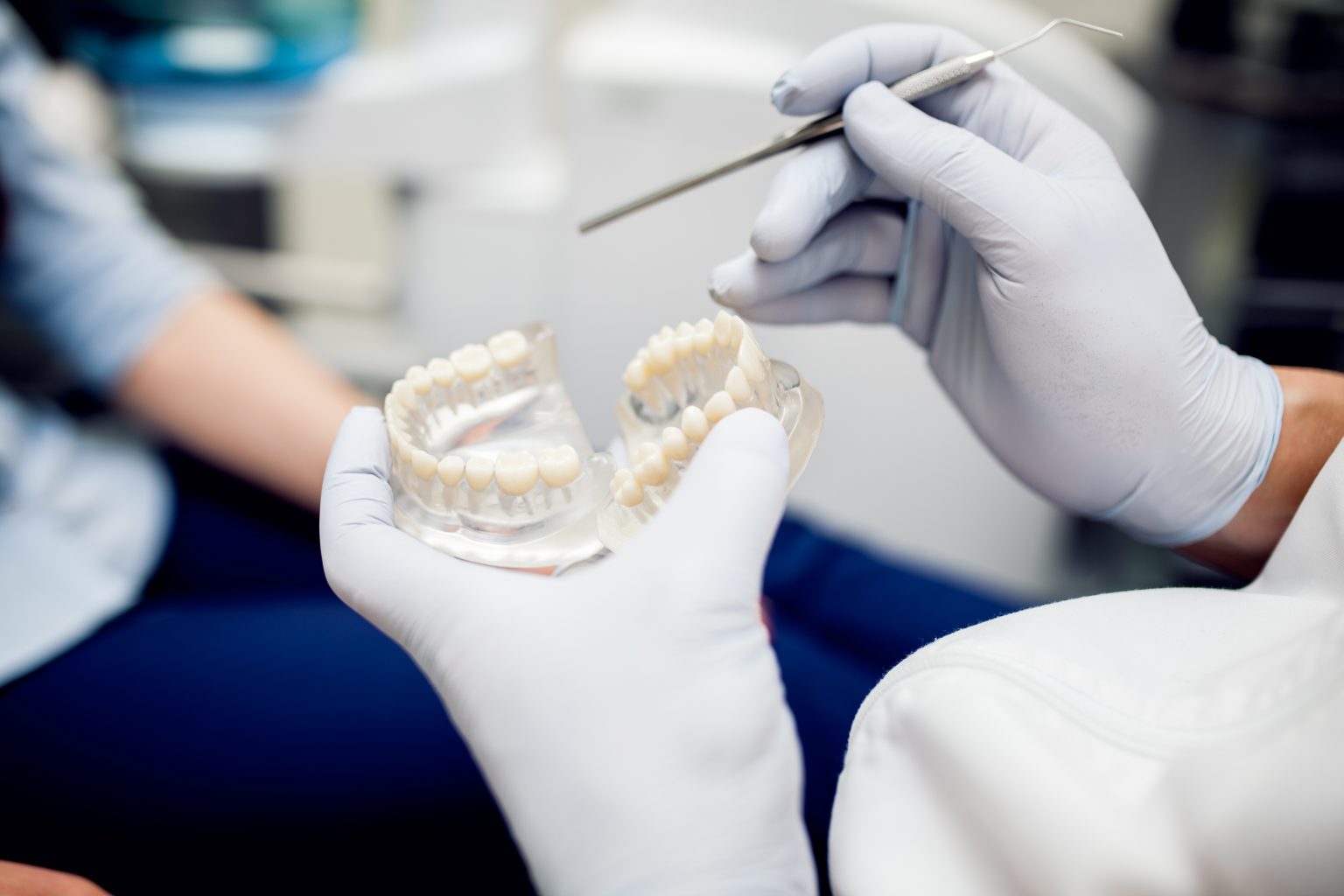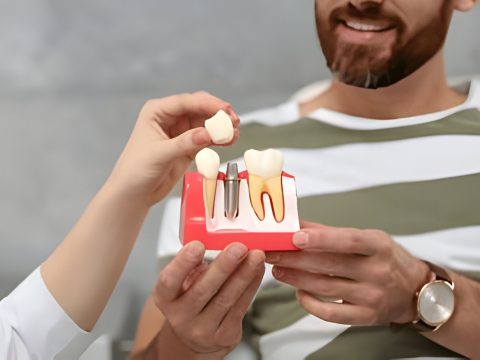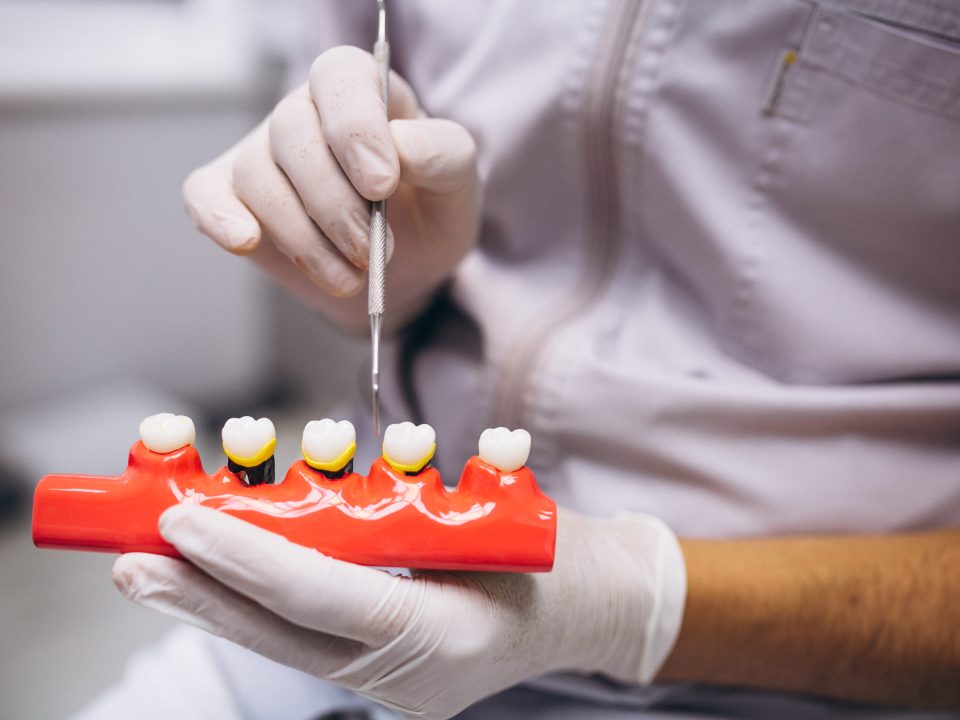A confident smile can light up a room and boost self-esteem. But for those with missing teeth, smiling with confidence can be a challenge. Dental implants have revolutionized the field of dentistry, offering a durable and natural-looking solution to replace missing teeth. However, not all dental implants are created equal. In this comprehensive guide, we will delve into the different types of dental implants, shedding light on the options available to restore your smile.
The Basics of Dental Implants
Before we explore the various types of dental implants, let’s grasp the fundamentals. Dental implants are prosthetic teeth roots made of biocompatible materials like titanium. They are surgically placed into the jawbone to provide support for replacement teeth, such as crowns, bridges, or dentures. This process offers stability, durability, and aesthetics that closely resemble natural teeth.
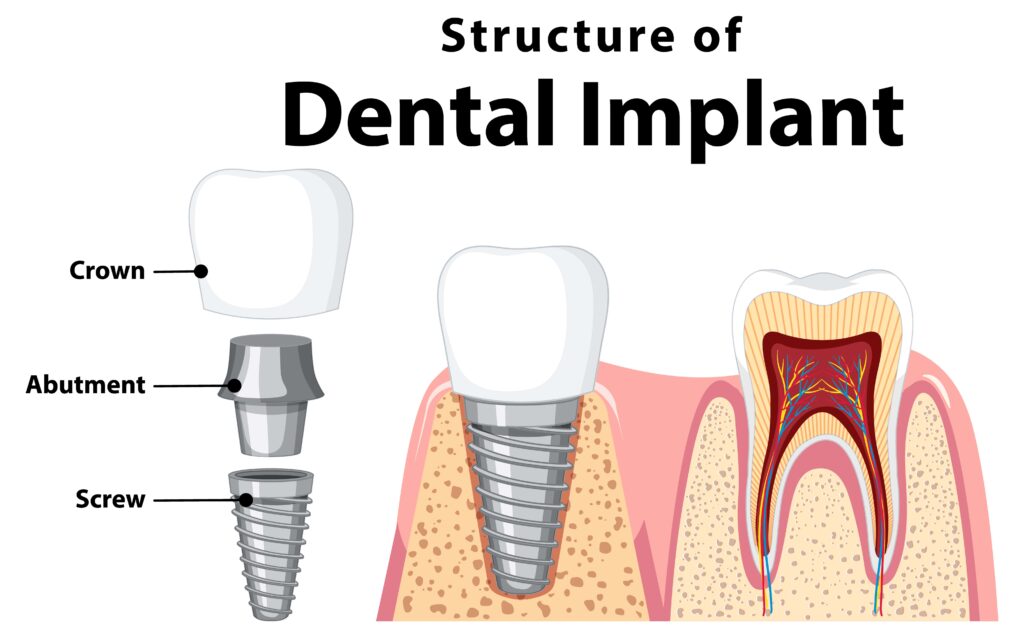
Traditional Dental Implants
Traditional dental implants, also known as endosteal implants, are the most common type. They consist of three main components:
- Implant: The implant is a screw-like post surgically placed into the jawbone. It serves as the root of the new tooth.
- Abutment: This connector piece attaches to the implant and protrudes above the gumline. It provides a foundation for the crown or bridge.
- Crown or Bridge: The final step involves attaching a custom-made crown or bridge to the abutment. This prosthetic tooth or teeth mimic the appearance and function of natural teeth.
Traditional dental implants are ideal for individuals with sufficient jawbone density and volume. They offer stability and longevity, making them a popular choice for single-tooth replacement or multiple missing teeth.
Mini Dental Implants
Mini dental implants (MDIs), as the name suggests, are smaller versions of traditional implants. They are a suitable option for patients with inadequate bone volume. MDIs consist of a single piece, eliminating the need for a separate abutment. The simplified procedure often results in shorter healing times.
MDIs are particularly popular for securing lower dentures. They provide stability and prevent denture slippage, enhancing comfort and confidence. However, they may not be suitable for all cases, and consultation with a dental professional is essential to determine the most appropriate implant type.
All-on-4 Dental Implants
The All-on-4 dental implant concept is a groundbreaking solution for those seeking full arch restoration, such as replacing all the teeth in the upper or lower jaw. This innovative approach involves the strategic placement of four dental implants to support an entire arch of teeth. The advantages of All-on-4 implants include:
- Fewer Implants: All-on-4 requires fewer implants compared to traditional methods, reducing surgical complexity.
- Stability: The distribution of force among four implants ensures stability for the entire arch.
- Immediate Function: In many cases, a temporary set of teeth can be attached on the same day as implant placement, allowing patients to enjoy immediate function.
All-on-4 dental implants are an excellent option for individuals with significant tooth loss or those looking to replace removable dentures with a fixed solution.
Zygomatic Implants
Zygomatic implants are a specialized type of dental implant used when there is insufficient upper jawbone to support traditional implants. Instead of anchoring into the maxilla (upper jaw), zygomatic implants are anchored in the zygomatic bone, which is the cheekbone. This innovative approach bypasses the need for bone grafting procedures, making it an appealing option for patients with severe bone loss.
Zygomatic implants are typically used for full arch restoration in the upper jaw, providing a stable foundation for a set of prosthetic teeth. This method offers an alternative to complex bone grafting surgeries, reducing treatment time and ensuring quicker results.
Subperiosteal Implants
Subperiosteal implants are less common but serve as an alternative for patients who cannot undergo traditional implant surgery due to inadequate bone density or volume. Instead of being placed within the jawbone, subperiosteal implants rest on top of the bone but beneath the gum tissue.
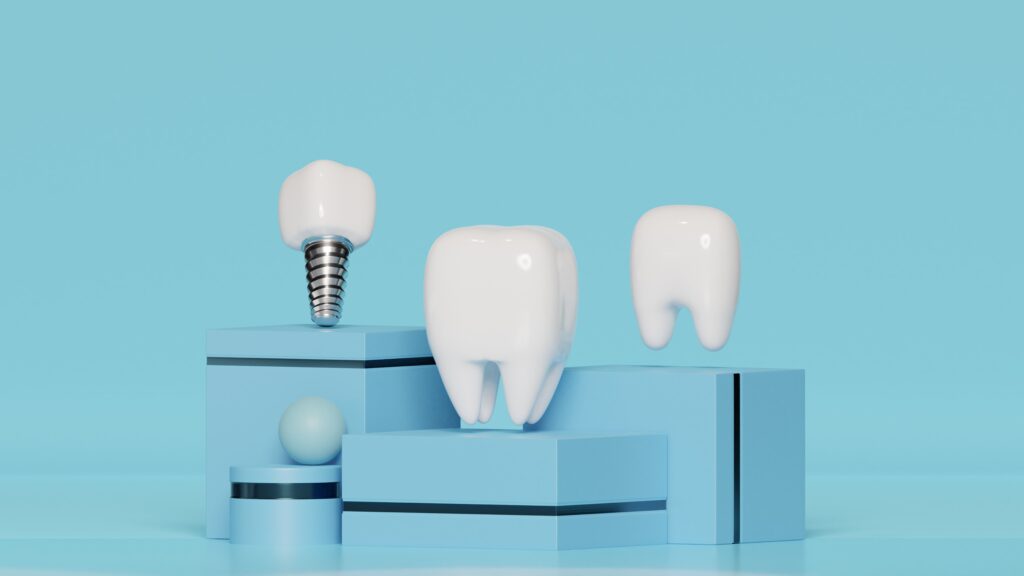
The subperiosteal implant consists of a metal framework with posts that protrude through the gumline. A custom-made prosthesis, such as a bridge or denture, is then attached to these posts. Subperiosteal implants are most often used to replace multiple missing teeth or secure dentures in individuals with limited bone support.
Choosing the Right Type of Dental Implant
Selecting the right type of dental implant depends on various factors, including:
- Bone Health: The quality and quantity of available jawbone play a crucial role in determining the suitable implant type.
- Number of Missing Teeth: The extent of tooth loss and whether it’s a single tooth or multiple teeth.
- Upper or Lower Jaw: Some implant types are better suited for the upper jaw, while others are designed for the lower jaw.
- Patient Preferences: Patient preferences and comfort level with surgical procedures.
It’s imperative to consult with a skilled dental professional who can assess your specific needs, perform necessary imaging and diagnostics, and recommend the most suitable dental implant type for your case.
The Benefits of Dental Implants
Regardless of the type chosen, dental implants offer several key benefits:
- Improved Aesthetics: Dental implants closely resemble natural teeth, providing a lifelike appearance.
- Enhanced Function: Implants allow for normal chewing, speaking, and biting, improving overall oral function.
- Longevity: With proper care, dental implants can last a lifetime, offering a durable and cost-effective solution.
- Preservation of Bone: Implants stimulate the jawbone, preventing bone loss and maintaining facial structure.
- Confidence: Dental implants restore self-confidence and a natural smile.
Conclusion
Dental implants have transformed the field of dentistry, offering a comprehensive solution for tooth replacement. Whether you opt for traditional implants, mini implants, All-on-4, zygomatic implants, or subperiosteal implants, the key to success lies in thorough consultation and personalized treatment planning. Your journey to a restored and confident smile begins with a discussion with a qualified dental professional who can guide you toward the most suitable dental implant type for your unique needs.



